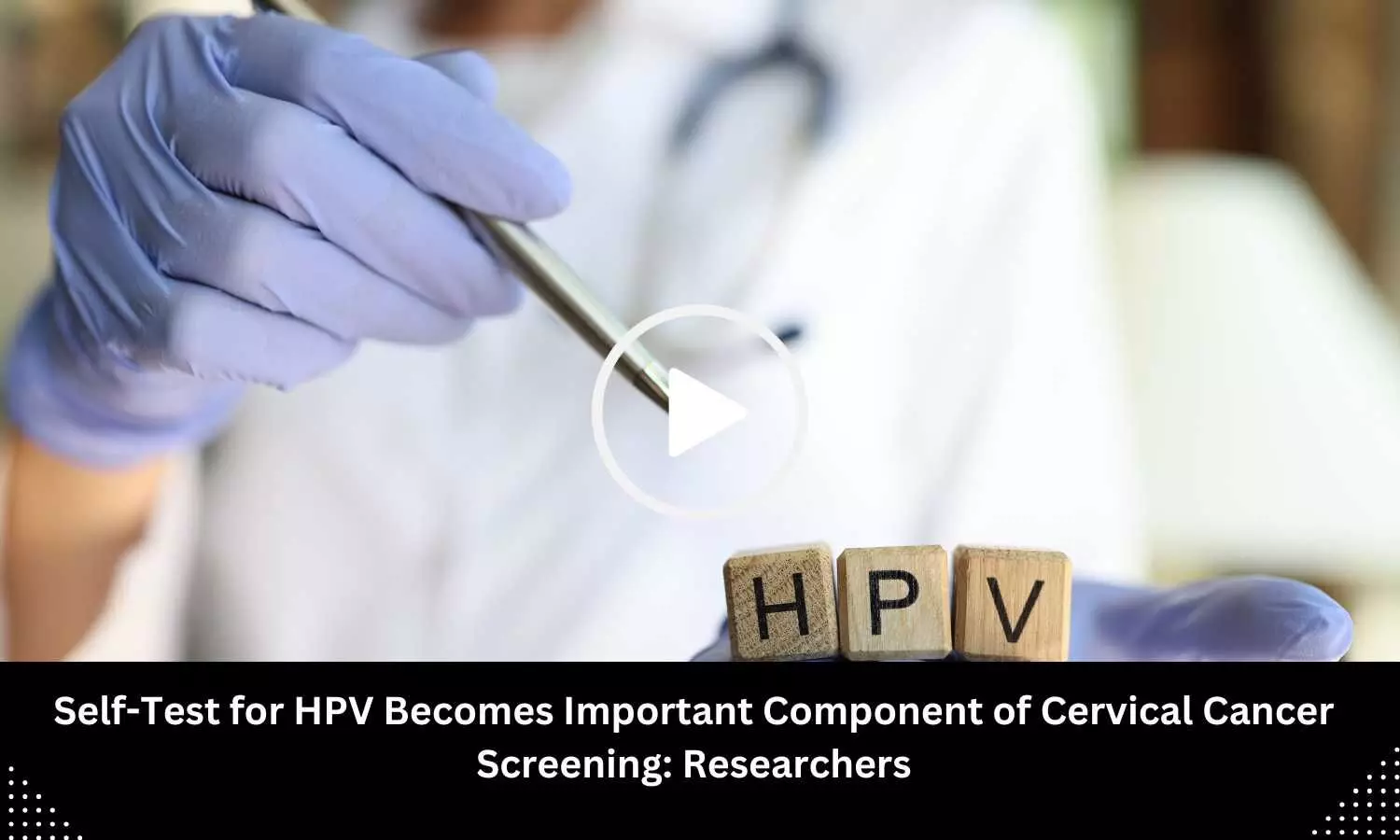- Home
- Medical news & Guidelines
- Anesthesiology
- Cardiology and CTVS
- Critical Care
- Dentistry
- Dermatology
- Diabetes and Endocrinology
- ENT
- Gastroenterology
- Medicine
- Nephrology
- Neurology
- Obstretics-Gynaecology
- Oncology
- Ophthalmology
- Orthopaedics
- Pediatrics-Neonatology
- Psychiatry
- Pulmonology
- Radiology
- Surgery
- Urology
- Laboratory Medicine
- Diet
- Nursing
- Paramedical
- Physiotherapy
- Health news
- Fact Check
- Bone Health Fact Check
- Brain Health Fact Check
- Cancer Related Fact Check
- Child Care Fact Check
- Dental and oral health fact check
- Diabetes and metabolic health fact check
- Diet and Nutrition Fact Check
- Eye and ENT Care Fact Check
- Fitness fact check
- Gut health fact check
- Heart health fact check
- Kidney health fact check
- Medical education fact check
- Men's health fact check
- Respiratory fact check
- Skin and hair care fact check
- Vaccine and Immunization fact check
- Women's health fact check
- AYUSH
- State News
- Andaman and Nicobar Islands
- Andhra Pradesh
- Arunachal Pradesh
- Assam
- Bihar
- Chandigarh
- Chattisgarh
- Dadra and Nagar Haveli
- Daman and Diu
- Delhi
- Goa
- Gujarat
- Haryana
- Himachal Pradesh
- Jammu & Kashmir
- Jharkhand
- Karnataka
- Kerala
- Ladakh
- Lakshadweep
- Madhya Pradesh
- Maharashtra
- Manipur
- Meghalaya
- Mizoram
- Nagaland
- Odisha
- Puducherry
- Punjab
- Rajasthan
- Sikkim
- Tamil Nadu
- Telangana
- Tripura
- Uttar Pradesh
- Uttrakhand
- West Bengal
- Medical Education
- Industry
Artificial Intelligence has potential for Prevention and early diagnosis of Cervical cancer, claims research

A recent groundbreaking study published in the journal eClinicalMedicine highlighted the potential of using artificial intelligence (AI) in the early diagnosis and prevention of cervical cancer.
Cervical cancer is the primary cause of increased morbidity and mortality worldwide. Effective screening of precancerous lesions helps in preventing cervical cancer. Cervical cytology screening and colposcopy are vital tools to prevent cervical intraepithelial neoplasia (CIN) and cervical cancer. Recently, AI has been used for various medical image analysis tasks to identify various diseases. Previous literature has shown the magnificent diagnostic accuracy of AI in detecting CIN and cervical cancer. However, a meta-analysis of all the studies has not been performed. Hence, researchers conducted a systematic review and meta-analysis to examine the pooled accuracy, sensitivity, and specificity of AI-assisted cervical cytology screening and colposcopy for cervical intraepithelial neoplasia and cervical cancer screening.
Various databases such as PubMed, Embase, and Cochrane Library were used to collect data between January 1, 1986, and August 31, 2024. Various studies that investigated the sensitivity and specificity of AI-assisted cervical cytology screening and colposcopy for histologically verified cervical intraepithelial neoplasia and cervical cancer and a minimum of five cases were included. The performance of AI and experienced colonoscopists were used to evaluate various metrics along with the area under the receiver operating characteristic curve (AUROC), sensitivity, specificity, accuracy, positive predictive value (PPV), and negative predictive value (NPV), analyzed through random effect models. Subgroup analyses were done to compare diagnostic performance across developed and developing countries.
Findings:
- About 77 studies that met the inclusion criteria were included.
- The pooled diagnostic performance metrics for AI-assisted cervical cytology using Papanicolaou (Pap) smears were as follows:
| accuracy | 94% (95% CI 92–96); |
| sensitivity, | 95% (95% CI 91–98); |
| specificity, | 94% (95% CI 89–97); |
| positive predictive value (PPV), | 88% (95% CI 78–96); |
| negative predictive value (NPV), | 95% (95% CI 89–99) |
- For AI-assisted cervical cytology using the ThinPrep cytologic test (TCT), the pooled metrics were:
| accuracy, | 90% (95% CI 85–94); |
| sensitivity, | 97% (95% CI 95–99); |
| specificity, | 94% (95% CI 85–98); |
| PPV, | 84% (95% CI 64–98); |
| NPV, | 96% (95% CI 94–98). |
Thus, the study concluded that AI can be used as a potential source for early diagnosis and prevention of cervical cancer. AI demonstrates enhanced diagnostic accuracy and can be used as a reliable tool for diagnostic precision. The study underscores the importance of using AI as a cost-effective tool for cervical cancer screening, minimizing observer variability, and improving outcomes.
Further reading: Liu, Lei et al. Performance of artificial intelligence for diagnosing cervical intraepithelial neoplasia and cervical cancer: a systematic review and meta-analysis. eClinicalMedicine, Volume 80, 102992. Doi: 10.1016/j.eclinm.2024.102992.
BDS, MDS
Dr.Niharika Harsha B (BDS,MDS) completed her BDS from Govt Dental College, Hyderabad and MDS from Dr.NTR University of health sciences(Now Kaloji Rao University). She has 4 years of private dental practice and worked for 2 years as Consultant Oral Radiologist at a Dental Imaging Centre in Hyderabad. She worked as Research Assistant and scientific writer in the development of Oral Anti cancer screening device with her seniors. She has a deep intriguing wish in writing highly engaging, captivating and informative medical content for a wider audience. She can be contacted at editorial@medicaldialogues.in.
Dr Kamal Kant Kohli-MBBS, DTCD- a chest specialist with more than 30 years of practice and a flair for writing clinical articles, Dr Kamal Kant Kohli joined Medical Dialogues as a Chief Editor of Medical News. Besides writing articles, as an editor, he proofreads and verifies all the medical content published on Medical Dialogues including those coming from journals, studies,medical conferences,guidelines etc. Email: drkohli@medicaldialogues.in. Contact no. 011-43720751




